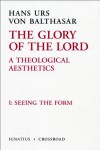
It's difficult to review a book like this. There is no denying the brilliance of Camus as a writer and philosopher. He wrote with conviction, eloquence, and passion. His characters arouse sympathy and compassion as they struggle through tragic circumstances in a meaningless world. Herein, though, lies the problem. He presupposes a life of meaninglessness in a chance existence, and constructs his philosophy around that presupposition. He understands at least some of the consequences of his position, and his stories and novels are suffused with the resulting despair. The medium for communicating the absurdity and despair of a meaningless world in The Plague is a mediocre city by the name of Orun. There is nothing remarkable about it or its inhabitants. They represent a cross-section of humanity, people in different stages of life, the eccentrics, the mundane, the winners, the losers, the healthy, the sick, the rich, the poor. Regardless of their stage or station in life, however, there is a sense of plodding dully through their lives that exists beneath whatever veneer they are able to construct for themselves. This veneer is peeled back by an outbreak of bubonic plague, which quickly isolates the people of the city in a state of quarantine. The plague begins slowly, infecting only a few people at first. As time passes, more and more people are infected and the death toll rises. The plague strips the veneer from the citizens and exposes the one thing that all mankind has in common; we are all destined to die. Concern becomes fear, but never gives way to panic. Part of the genius and attractiveness of the novel can be found at this point. The people of the city, cut off from the outside world and faced with an epidemic that reveals their mortality do not descend into despair. They pull together in various acts of solidarity. They do not so much try to find meaning in the plague as they decide to fight against it despite the meaninglessness of it. There is a heroism in this decision that inspires sympathy for the characters. As the plague wears on for months on end with no respite, they continue to fight for their lives as individuals and as a community. One cannot help but admire them as they endure terrible random suffering. This is not the only theme that Camus explores in the novel. Far from it. He ponders the cruelty of pain inflicted on the innocent, the inability of religion to answer the questions of existence, and much more. The Plague functions well on many levels simultaneously. So why only three stars? The reason lies in Camus’ pre-supposition that life is absurd and meaningless. A marvelous statue built on a flawed foundation is compromised by that foundation. The same goes for Camus’ writing. As eloquent, articulate, intelligent and passionate as he was, he was also wrong, and could not truly follow his pre-supposition to its conclusion. If existence is meaningless and all is absurdity, then there is no reason to find dignity in the fight against death. This search for dignity is a thread that runs through much of Camus’ work, but why bother? Dignity is meaningless in an absurd world. Reason and logic have no place and cannot even be said to exist. If all is absurdity, then the very word “reason” is empty and devoid of anything. It may trigger an emotional reaction based on reminiscing about a time when there was meaning, but reason itself cannot exist. Based on his presupposition, then, The Plague can ultimately have no meaning and can offer us nothing. I reject that premise. As such, though I recognize the artistic merits of the novel, those merits are compromised by a profound misunderstanding of the nature of reality.
 It's difficult to review a book like this. There is no denying the brilliance of Camus as a writer and philosopher. He wrote with conviction, eloquence, and passion. His characters arouse sympathy and compassion as they struggle through tragic circumstances in a meaningless world. Herein, though, lies the problem. He presupposes a life of meaninglessness in a chance existence, and constructs his philosophy around that presupposition. He understands at least some of the consequences of his position, and his stories and novels are suffused with the resulting despair. The medium for communicating the absurdity and despair of a meaningless world in The Plague is a mediocre city by the name of Orun. There is nothing remarkable about it or its inhabitants. They represent a cross-section of humanity, people in different stages of life, the eccentrics, the mundane, the winners, the losers, the healthy, the sick, the rich, the poor. Regardless of their stage or station in life, however, there is a sense of plodding dully through their lives that exists beneath whatever veneer they are able to construct for themselves. This veneer is peeled back by an outbreak of bubonic plague, which quickly isolates the people of the city in a state of quarantine. The plague begins slowly, infecting only a few people at first. As time passes, more and more people are infected and the death toll rises. The plague strips the veneer from the citizens and exposes the one thing that all mankind has in common; we are all destined to die. Concern becomes fear, but never gives way to panic. Part of the genius and attractiveness of the novel can be found at this point. The people of the city, cut off from the outside world and faced with an epidemic that reveals their mortality do not descend into despair. They pull together in various acts of solidarity. They do not so much try to find meaning in the plague as they decide to fight against it despite the meaninglessness of it. There is a heroism in this decision that inspires sympathy for the characters. As the plague wears on for months on end with no respite, they continue to fight for their lives as individuals and as a community. One cannot help but admire them as they endure terrible random suffering. This is not the only theme that Camus explores in the novel. Far from it. He ponders the cruelty of pain inflicted on the innocent, the inability of religion to answer the questions of existence, and much more. The Plague functions well on many levels simultaneously. So why only three stars? The reason lies in Camus’ pre-supposition that life is absurd and meaningless. A marvelous statue built on a flawed foundation is compromised by that foundation. The same goes for Camus’ writing. As eloquent, articulate, intelligent and passionate as he was, he was also wrong, and could not truly follow his pre-supposition to its conclusion. If existence is meaningless and all is absurdity, then there is no reason to find dignity in the fight against death. This search for dignity is a thread that runs through much of Camus’ work, but why bother? Dignity is meaningless in an absurd world. Reason and logic have no place and cannot even be said to exist. If all is absurdity, then the very word “reason” is empty and devoid of anything. It may trigger an emotional reaction based on reminiscing about a time when there was meaning, but reason itself cannot exist. Based on his presupposition, then, The Plague can ultimately have no meaning and can offer us nothing. I reject that premise. As such, though I recognize the artistic merits of the novel, those merits are compromised by a profound misunderstanding of the nature of reality.
It's difficult to review a book like this. There is no denying the brilliance of Camus as a writer and philosopher. He wrote with conviction, eloquence, and passion. His characters arouse sympathy and compassion as they struggle through tragic circumstances in a meaningless world. Herein, though, lies the problem. He presupposes a life of meaninglessness in a chance existence, and constructs his philosophy around that presupposition. He understands at least some of the consequences of his position, and his stories and novels are suffused with the resulting despair. The medium for communicating the absurdity and despair of a meaningless world in The Plague is a mediocre city by the name of Orun. There is nothing remarkable about it or its inhabitants. They represent a cross-section of humanity, people in different stages of life, the eccentrics, the mundane, the winners, the losers, the healthy, the sick, the rich, the poor. Regardless of their stage or station in life, however, there is a sense of plodding dully through their lives that exists beneath whatever veneer they are able to construct for themselves. This veneer is peeled back by an outbreak of bubonic plague, which quickly isolates the people of the city in a state of quarantine. The plague begins slowly, infecting only a few people at first. As time passes, more and more people are infected and the death toll rises. The plague strips the veneer from the citizens and exposes the one thing that all mankind has in common; we are all destined to die. Concern becomes fear, but never gives way to panic. Part of the genius and attractiveness of the novel can be found at this point. The people of the city, cut off from the outside world and faced with an epidemic that reveals their mortality do not descend into despair. They pull together in various acts of solidarity. They do not so much try to find meaning in the plague as they decide to fight against it despite the meaninglessness of it. There is a heroism in this decision that inspires sympathy for the characters. As the plague wears on for months on end with no respite, they continue to fight for their lives as individuals and as a community. One cannot help but admire them as they endure terrible random suffering. This is not the only theme that Camus explores in the novel. Far from it. He ponders the cruelty of pain inflicted on the innocent, the inability of religion to answer the questions of existence, and much more. The Plague functions well on many levels simultaneously. So why only three stars? The reason lies in Camus’ pre-supposition that life is absurd and meaningless. A marvelous statue built on a flawed foundation is compromised by that foundation. The same goes for Camus’ writing. As eloquent, articulate, intelligent and passionate as he was, he was also wrong, and could not truly follow his pre-supposition to its conclusion. If existence is meaningless and all is absurdity, then there is no reason to find dignity in the fight against death. This search for dignity is a thread that runs through much of Camus’ work, but why bother? Dignity is meaningless in an absurd world. Reason and logic have no place and cannot even be said to exist. If all is absurdity, then the very word “reason” is empty and devoid of anything. It may trigger an emotional reaction based on reminiscing about a time when there was meaning, but reason itself cannot exist. Based on his presupposition, then, The Plague can ultimately have no meaning and can offer us nothing. I reject that premise. As such, though I recognize the artistic merits of the novel, those merits are compromised by a profound misunderstanding of the nature of reality.







